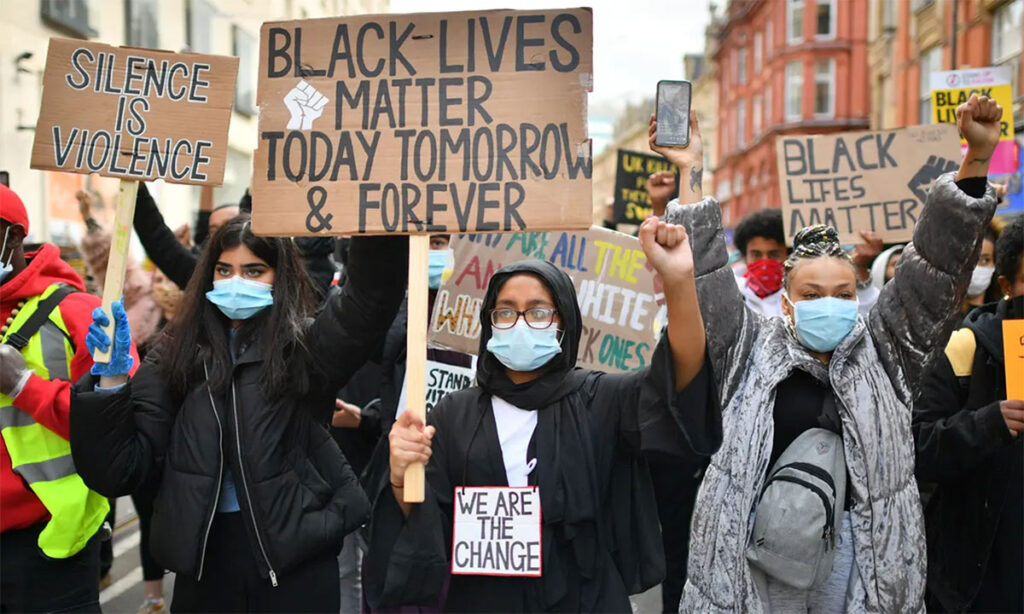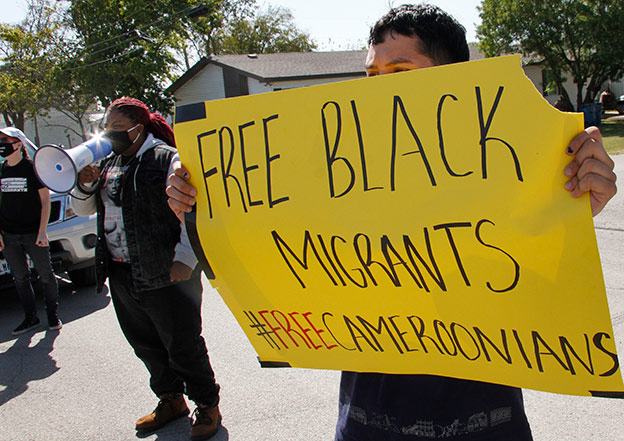The Black Alliance for Just Immigration (BAJI) is a critical organization that emerged in 2006 to address the intersectional issues of racial justice and immigrant rights, particularly focusing on the unique challenges faced by Black immigrants in the United States. BAJI is known for its advocacy, education, and mobilization efforts aimed at building a broader movement for racial justice and human rights.
Founding of BAJI

BAJI was founded to give voice to Black immigrants, whose experiences and challenges often went unrecognized in broader immigration and racial justice discussions. The organization was established in response to harsh immigration laws and policies that disproportionately impacted Black immigrant communities. It also sought to bridge the divide between African American and immigrant communities, fostering solidarity and a unified approach to combating systemic racism.
The founders of BAJI recognized that both African Americans and Black immigrants were subjected to the dual penalties of racial discrimination and economic exploitation. They aimed to create an organization that would address these intersecting injustices, advocating for policy changes and providing educational programs that emphasized the connected histories and shared struggles of Black people globally.
Key Founders of BAJI and Their Contributions:
- Opal Tometi – Perhaps the most well-known of the BAJI founders, Opal Tometi is also a co-founder of the Black Lives Matter movement. Tometi’s leadership in BAJI focused on advocacy and organizing. Her work was instrumental in highlighting the link between immigration policies and racial justice, emphasizing how immigration enforcement disproportionately affects Black communities. Tometi also brought a global perspective to BAJI, stressing the importance of solidarity among all Black people, irrespective of their geographical origins.
- Gerald Lenoir – The first Executive Director of BAJI, Lenoir brought his extensive experience in civil rights activism and community organizing to the organization. Under his leadership, BAJI expanded its reach and impact, engaging in policy advocacy, community organizing, and alliance-building among African American and Black immigrant communities. Lenoir played a crucial role in shaping BAJI’s strategic direction and in highlighting issues such as the racial profiling of Black immigrants.
- Almaz Negash – As a founding member, Negash brought a deep understanding of the challenges faced by African immigrants in the U.S. Her contributions helped steer BAJI’s programs towards addressing specific issues such as economic empowerment, social justice, and advocating for humane immigration policies.
BAJI and Black Lives Matter:
Did BAJI Start Black Lives Matter? While BAJI itself did not start Black Lives Matter, the two organizations do share a founder in Opal Tometi. BAJI and BLM also share common goals regarding racial justice and has been supportive of the BLM movement.
How did Black Lives Matter start? Black Lives Matter (BLM) began as a grassroots movement in 2013 following the acquittal of George Zimmerman in the shooting death of Trayvon Martin, a 17-year-old African American teenager. Zimmerman’s acquittal sparked outrage and a deep sense of injustice among many, particularly within the African American community.
The movement was initiated by three activists: Alicia Garza, Patrisse Cullors, and Opal Tometi. Alicia Garza’s response to the verdict was a powerful Facebook post that included the phrase “Black lives matter,” which quickly resonated with many. Patrisse Cullors turned the phrase into a hashtag, #BlackLivesMatter, which spread virally across social media platforms, mobilizing community organizing and protests. Opal Tometi, also deeply involved from the start, contributed by building the digital platform and infrastructure necessary for the movement to organize across the nation.
Black Lives Matter focused on protesting against systemic racism, police brutality, and the violence inflicted upon Black communities by the state and vigilantes. The movement rapidly grew into a global organization with a broad agenda encompassing the fight for racial justice and equality.
Coupons: TurboTax | Nutrisystem | Byte | Fanatics | VistaPrint
BAJI’s Impact and Activities

Since its inception, BAJI has made significant contributions to the discourse on immigration and civil rights. Some of the organization’s key activities include:
- Advocacy and Policy Work: BAJI has been at the forefront of advocating for fair immigration policies that do not discriminate on the basis of race or national origin. The organization has worked to influence policy at both the national and local levels.
- Educational Programs: Through workshops, seminars, and public speaking engagements, BAJI educates communities about how immigration policies affect Black people. They provide resources and training that empower individuals and communities to advocate for their rights.
- Building Alliances: BAJI works closely with African American, Afro-Latino, Caribbean, and African communities to build coalitions that strengthen the push for racial justice. These alliances are crucial in broadening the conversation about what racial equity means across different communities.
- International Advocacy: Recognizing the global nature of racial injustice, BAJI also engages in international advocacy, particularly focusing on issues affecting Africans and Afro-descendants in the Americas and beyond.
Conclusion
The Black Alliance for Just Immigration has played a pivotal role in redefining the intersections of racial justice and immigrant rights. Through the contributions of its founders and the ongoing work of its members, BAJI continues to advocate for systemic change, ensuring that the rights and dignity of Black immigrants are protected and upheld. The organization remains a vital voice in the ongoing struggle for justice and equality, advocating not only for policy changes but also for a shift in how society views and treats Black immigrants and African Americans.

